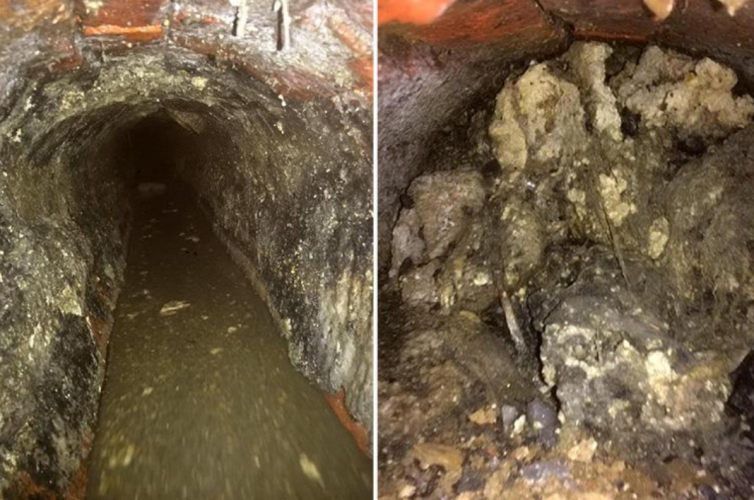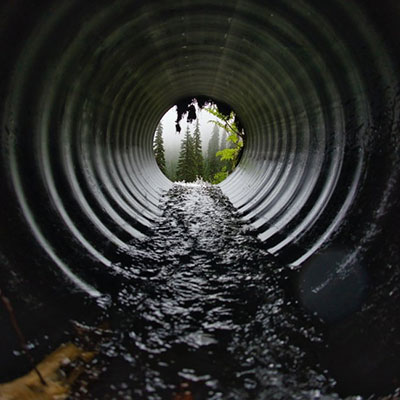FOGs (Fat, Oil & Grease)

Fats, oils, grease and food waste cause major problems in our drains and sewers. When disposed of down kitchen sinks, toilets or drains, this waste congeals to form blockages which can lead to flooding and pollution.
When these products enter the drainage systems that carry roof water from our homes and surface water from our drives or pathways, they can directly pollute our streams and rivers.
What happens to the fat?
Fats, oils and grease (FOG) in liquid form may not appear to be harmful but when disposed of into the drainage system they mix with food and other sanitary waste, congeal and harden in the pipe. Over time this grows to form blockages.
Using detergents or bleach may have some impact on clearing grease and other debris from the pipework beneath the kitchen sink, but these chemicals have little impact when they become naturally diluted in the sewer network.
What happens to the waste pipes?
Gradually the fats, oils and grease build up in the sewer network until blockages occur. This is a significant problem.
The water and sewerage companies in the UK respond to approximately 366,000 sewer blockages every year. There are several hundred thousand more which occur in customers’ own pipework, for which they have to arrange clearance and repair. In some parts of the country three-quarters of these are caused by fats, oils and grease.
The clean-up costs for the water industry run to millions of pounds, costs which are ultimately passed on to customers through wastewater bills.
Many sewer blockages occur because catering establishments have inadequate procedures in place to dispose of fats and food waste incorrectly.
What happens to the environment?
Our sewers were designed to carry sewage and not other forms of waste. Where these sewers also carry rainwater from our roofs and other paved areas, any accumulation of debris in the drainage system can rapidly overload the network. Where storm overflows exist in our sewers this can lead to unnecessary discharges of untreated sewage into our streams and rivers. Where such overflows do not exist, sewage flooding can occur to homes, businesses, parks, gardens and other open spaces.
What’s the answer?
The water industry has published best practice guidelines to ensure that fats, oils and grease are disposed of correctly and do not enter drains and sewers.
Individual water and sewerage companies also publish advice to customers on the correct use of the wastewater network and alternative disposal methods for fats, oils, grease and other waste products which are not suitable for disposal via the domestic drainage system.
Commercial companies exist for the collection and disposal of fats, oils and grease. These ensure that such waste is carried, managed and disposed of appropriately. The activities of these companies are regulated by the Environment Agency or SEPA in Scotland.
The fat facts
Blockages account for 80% of sewer flooding incidents in the UK and more than 5,000 properties are flooded each year as a result.
There are approximately 370,000 sewer blockages throughout the UK every year, of which up to 80% are caused by fats, oils and grease, wipes, sanitary waste and other un-flushable items.
Around £100 million is spent annually on reactive blockage clearance nationwide, with further costs for clean-up after flooding incidents. These costs will be paid for through customer bills.
Through sewer flooding, FOG build-up is indirectly responsible for many cases of property damage and pollution incidents.
Even when FOG compounds cause few problems in sewers, they can result in serious difficulties at sewage pumping stations, including problems with build-up.
If we all take care not to dispose of fats, oils, grease or other food waste into the sewerage system, the number of customers affected by flooding and the impact on our environment will be significantly reduced.





